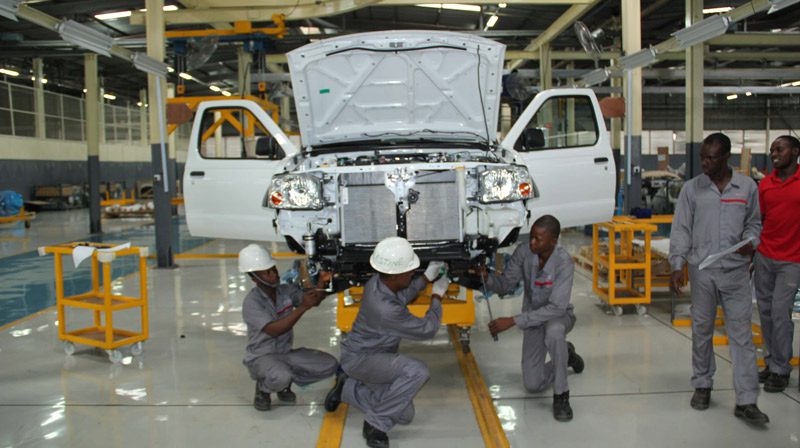The Ghanaian government has announced plans to review the Ghana Automotive Development Policy, with a focus on incorporating an electric vehicle (EV) policy framework. This move is expected to position Ghana as a competitive destination for investment in the rapidly growing EV sector. According to the Minister for Trade, Industry, and Agribusiness, Elizabeth Ofosu-Agyare, this update is crucial for creating an environment where businesses in the automotive industry can thrive.
The automotive industry is a significant contributor to global economies, and Ghana is no exception. In 2022, the global EV market was valued at over $200 billion, and it is projected to grow by 23.1% annually until 2030. While Ghana’s EV market is still in its infancy, the government’s proactive approach could help the country tap into this booming industry. Additionally, studies show that EVs could reduce greenhouse gas emissions by up to 50% compared to traditional vehicles, making this policy update not just an economic opportunity but also an environmental necessity.
What the Policy Review Includes
The revised policy aims to include electric bicycles, tricycles, and motors, alongside traditional EVs. To encourage adoption, the government plans to offer subsidies and tax waivers for these vehicles. This is a significant step, as affordability is often a barrier to EV adoption in developing countries. The government is also working on a component manufacturing law to support local production and create jobs.
Why This Matters
When the original policy was introduced five years ago, EVs were not as popular as they are today. Now, with global EV sales surpassing 10 million units in 2022, Ghana is amending its laws to stay relevant. The policy update is expected to attract foreign investment, boost local manufacturing, and reduce the country’s reliance on used vehicles, which currently dominate the market.
This policy review is part of Ghana’s broader vision to align with global trends and create a sustainable future. By incorporating EVs into its automotive policy, Ghana is not only preparing for the future of transportation but also contributing to the fight against climate change. The government’s commitment to stakeholder consultations and a 24-hour economy initiative further highlights its dedication to making this vision a reality.
In conclusion, the review of the Ghana Automotive Development Policy is a forward-thinking move that could transform the country’s automotive industry. With the right support and implementation, Ghana could become a hub for EV production and innovation in Africa. This is an exciting time for the industry, and all eyes will be on Ghana as it takes these bold steps toward a sustainable future.




